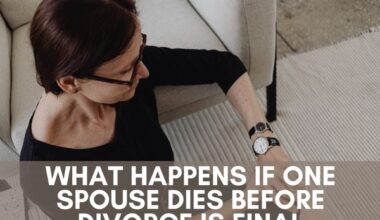Why are some people single? Some people are single because they choose to be. They are not interested in being in a deep relationship at this time in their lives.
Others are celibate due to their life circumstances. Maybe they just got out of a meaningful relationship, or they dated relentlessly and haven’t found someone they’re compatible.
The point of this article is not to stereotype all single women and men or to put anyone in a box.
Why are some people single?
Regarding dating and relationships, it’s hard not to feel like a victim. After all, others can be cruel; You’re going to get hurt, and no, it’s not always your fault.
But the truth is, we hold more power over our romantic destiny than we usually think. To a large extent, we build our world, although we are seldom aware of this process.
We can become aware of the myriad ways we influence the feedback we get from others, even negative feedback.
However, for people looking for answers to the baffling question, “Why are some people single?” Here are some of the unconventional solutions that lie within.
1) Defense
Most people have been hurt in personal relationships. With the passage of time and traumatic backgrounds, we risk building up contrasting degrees of resentment and standing up for ourselves.
This process commences long before we start dating, in our childhood, when abusive interactions and dynamics lead us to put up walls or perceive the world through a filter that can negatively affect us as adults.
These alterations can make us more self-protective and closed off. In our relationships with adults, we may resist being too vulnerable or write off people too quickly.
If for example, you may grow up mistrusting affection if he was raised by parents or caregivers who were neglectful or cold.
You may feel pessimistic about people who show “too much” interest in you and instead seek relationships that recreate dynamics from your past.
You can then choose a secluded or distant partner. It is not always easy to see when we have our defenses.
As a result, we blame our loneliness on outside forces and fail to realize that we are not as open-minded as we think.

2) Unhealthy Attractions
When we act on our defenses, we tend to pick less-than-ideal relationship spouses.
We may develop an unsatisfying relationship by desiring someone emotionally unavailable Because this process is primarily unconscious, we often blame our spouse for the failed outcome of the relationship.
We tend to feel devastated or hurt by repeated denials without realizing that we are looking for this pattern.
Why do we do this? The reasons are complex and often based on our inherent fears of intimacy.
Many people have an insentient urge to seek relationships that reinforce the critical ideas they have long had about themselves and to replay negative aspects of their childhood.
These can be problematic, but breaking out of old patterns can cause anxiety and discomfort and make us feel strangely estranged and alone in a more loving environment.
Our fears of breaking away from the image we developed of ourselves early on and starting to see ourselves in a more positive light, paradoxically, can make us feel uncomfortable and may trigger self-attacking thoughts like, “Who do you think you are? You’re not that cool.”
These fears may lead us to cling to relationships without potential or to feel attracted to people who are not genuinely available because they reinforce our negative self-image, with which we feel more comfortable and familiar.
3) Pickiness
Our mindset constantly leaves us feeling pickier and more censorious. This is highly true after we’ve had dire circumstances where we were deceived or denied by a person for whom we had strong feelings.
Many women start believing, “There are no decent men out there,” or” All the good ones are taken.”
Men may have notions like, “You can’t trust women” or “Women are all out to take advantage of you.”
We may have utopian expectations for a spouse or pinpoint shortcomings from the moment we meet someone.
When viewing the world from critical or distrusting eyes, we tend to write off a range of prospective partners before giving them a chance.
We think of dating certain people as “settling” without seeing how that person could make us happy in the long term.
So many love stories show us that we may not be settling at all when we think we are “settling” for someone.
We may find ourselves in a relationship that is so much more rewarding than those we have encountered.
Ironically, initially, we tend not to trust the people who like us, but when we give them a chance, we find that we’ve chosen someone who values us for who we are.
4) Self-Esteem
So many people have expressed the same opinion. They acknowledge they want a fulfilling relationship more than anything, but they feel even more firmly that no one worthwhile would be interested in them.
We all possess “critical inner voices” that judge our looks, intelligence, voice, age, and achievements.
When we listen to these “voices,” we engage in conduct pushing people away.
When we stay single, it is not for the reasons we’re telling ourselves. Our lack of confidence leaves us giving off signals of not being open.
Many persons even have trouble leaving the house when they’re down on themselves, let alone searching for situations where they are likely to meet possible partners.
Some put a lot of effort into making eye contact or are hesitant to scan the room to who they might be attracted.
When drawn to someone, they may fail to pursue their strongest attractions due to a lack of self-esteem.

5) Fear of Intimacy
Most of us confess that we want to find a loving spouse, but a fundamental understanding of love disrupts illusions of love that have served as a survival tool since early childhood.
Pushing away and punishing the beloved acts to maintain one’s pessimistic self-image and reduces nervousness.”
Our fears encompassing intimacy may manifest as worries over someone “liking us too much,” an understandably illogical explanation not to date a person.
Or we may punish the other person by being critical, even entertaining nasty conduct, ensuring we don’t get a loving response.
The reality is that most people can only accept a specific amount of intimacy. We are defended about letting someone else in. On a deeper level, we shy away from the love we say we want.
6) Competition
An absence of self-esteem usually leads to fears of contending. It’s easy to put ourselves below others, particularly when it comes to dating.
When we meet someone we desire, it’s easy to think, “He/she could want someone better.”
When we notice another person is interested in the person we want, we walk away quickly.
We often feel reluctant to compete, particularly as we age, and we start to have self-attacks like “Your time has been exhausted; you’re too old for this.”
Our fears of competition can make us avoid bringing ourselves out there. We may have a fear of looking like a fool or of not being chosen. We may be scared of aggression from the opponent or hurting their feelings.
The simple reality is: dating is competitive. It is risky to take a chance and compete for what we want and compete, but when we do, we often find it worth facing our fears.
We end up with a powerful sense of self, boosting our opportunities with the spouse we desire.

7) Isolation
With age, people tend to withdraw further into their comfort zones. Contemporary women are more prosperous, accomplished, and self-sufficient, a highly positive development.
Yet as both genders get more relaxed, be it financially or virtually, it is also easier for them to form a swell from which it is difficult to materialize.
It can feel harder to take chances or put themselves out there.
The motivation we feel to stay home or stay safe often comes from our inner voice.
This internal coach offers self-soothing words, “Stay tonight and relieve tension.” “You’re better off on your own,” “See that movie you like.”
The issue with this voice is that it later comes back with thoughts like, “What a disappointment you are. You’ll be lonely for life. No one will be enticed to you.”
Many of the actions we use to “console” ourselves make us feel bad in the eyes. It’s vital to withstand falling into a comfort zone and continually challenge the impact of our inner voice.
We should try to get out into the world, smile, make eye contact and let friends know we are ready to mingle.
We should try new activities and even date different people to discover new parts of ourselves and what keeps us happy.
8)Rule-making
As the years pass, we frequently formulate rule books for ourselves considering dating.
In effect, we put what we have understood “down on paper,” but what is good on paper doesn’t always work in reality.
When we act based on our past rules, we can build a perpetual cycle of disappointing relationships.
Many women date people they have a strong chemistry with. When it doesn’t work out, they stop looking for a guy they feel connected to.
It’s crucial not to make fixed rules or to buy into other people’s judgments when it comes to dating.
Staying open is one of the most important things we can do when looking for a loving spouse.
Yes, we might get hurt, but when we stop taking risks, we reduce the likelihood of meeting someone we could have a future with.
Relationship rules tend to go hand-in-hand with game-playing. They can make us act with less seriousness and genuineness to close ourselves off from how we feel.
In other words, staying open and candid will help us to find a more authentic and substantial relationship.
Pursuing love isn’t easy, but it’s always best to take this journey aloneFightingght the patterns that stop us from getting what we w is essential. We all have flaws that are incredibly close to one another.
Therefore, attaining intimacy is a battle well-worth fighting for.
Conclusion
Being in a wholesome, loving relationship is one of life’s greatest pleasures.
At the same time, it is certainly not essential to have a whole and happy life, and many people choose to be celibate their entire lives and do so gleefully.
Now, if you want a long-term relationship but haven’t tried yet, or often battle with making relationships work when they come.
You’ll need to look closely at your dating history and habits to understand what roadblocks might stand in your way — whether your occurrences cause them. Or from within you.
We all come into relationships with different sets of demands, records, dispositions, individualities, and life preferences.
Give yourself a little grace and a little sympathy as you go through the journey.








